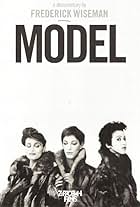I've had some of my favourite people die the last year or two, and spent a fair bit of time skulking in hospitals where dozens of patients all lie in sight of each other, measuring who's the closest to dropping off, sometimes having to remain for several hours in the same room as a dead person with whom they'd previously spoken on many occasions. The curtain isn't even always closed on them and the body remains in plain sight. Jung said something along the lines of the only way to lie comfortably on your deathbed is to constantly make plans for tomorrow as if you will one day rise again. I didn't see much of that going on there. Just sallow faces too scared to look down at their own cancer- consumed legs.
The main focus over these six hours is trying to work out just how far you should go to stave off an inevitable death. If a relative wants, the medical staff will assemble a team of literally dozens of people on call wielding drips, interpreting machines measuring their vital signs, making incisions, shouting out assessments over each other. And very few of the relatives here wanted any of their loved ones to go gentle into that good night. They hold onto an invisible strand of hope as long as possible, and the doctors confer and confer about their own attitudes towards their patients. Continuously expending all this energy on keeping obvious write-offs alive, which would likely result in brain damage even if they did survive, which they won't, clearly gets to some of them, although most of them abide by the Hippocratic Oath to the point that doing everything they can to give dying patients a few extra hours comes automatically to them.
Wiseman's lens is different to that of other directors. It's hard to ascertain exactly how he does it, but he manages to show that behind every pulse in a temple, every slight arching of an eyebrow, timbre of a voice, hand gesture and body stance there's a thought and reasoning and these surface tics are data belying our underlying thought processes. His films are almost raw footage but they still manage to keep you captive because, though we sometimes forget it ourselves, every human has a complex that will never be untangled. Werner Herzog might say Wiseman's verité documentaries only capture "the truth of accountants", but that seems to be downplaying his subjects' ability to tell hundreds of stories in every frame simply by dint of existing. And dying.













